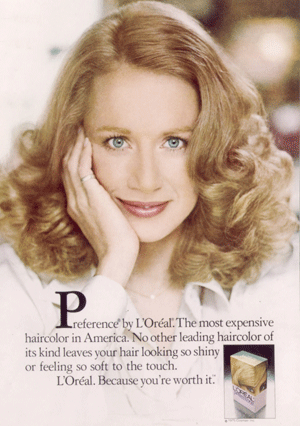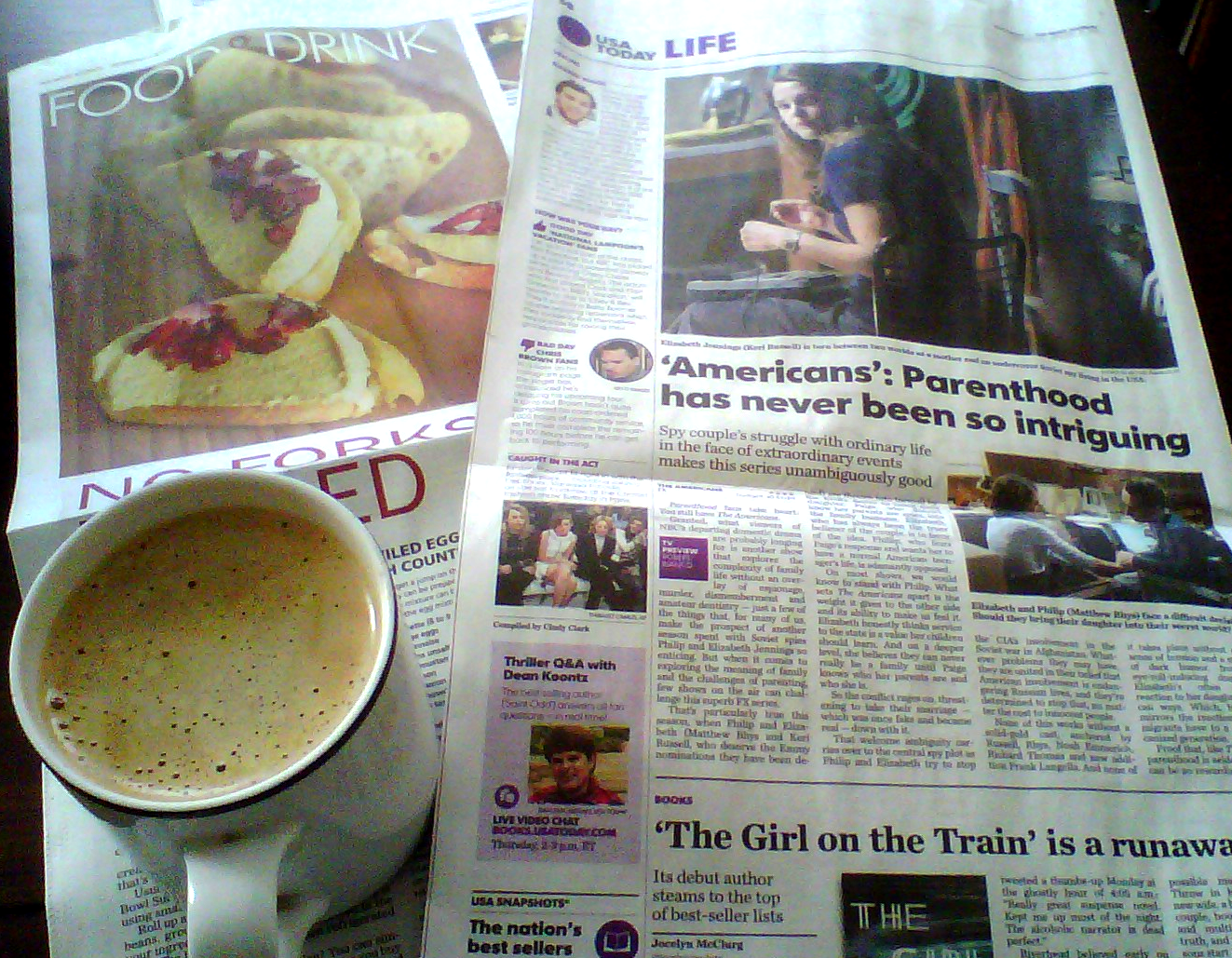I’ve never been one of those who enjoys cleaning my home and keeping it organized. And yet, I’ve found over the years that I function better and am happier when my living and working environments are neat, tidy, and clean. Now that I am retired, you’d think it would have become simpler to maintain order here at home... but it has not! It’s by no means the proverbial pigsty my mother used to occasionally compare my messy childhood room to, but it’s typically not as organized and company-ready as I’d like. From as far back as I can remember, spring has been the traditional time to do a really thorough housecleaning.
My local newspaper recently featured information from a book about the history of house cleaning, Never Done: a History of American Housework, by Susan Strasser, a local professor emeritus of history. (She has written some books that sound fascinating, by the way, including a history of trash!) Then, as now, where winter weather is cold, people keep their windows tightly shut to conserve warmth. But when coal and wood were used to heat homes, and kerosene and candles were used for lighting, a lot of dirt accumulated during the cold season. It wasn’t just dust - oily soot had to be removed from surfaces, and that was hard work. Spring cleaning was an absolute necessity back then. According to Strasser, women would typically set aside a full week, and work daily, from dawn to dark, on their spring cleaning.
There were no vacuum cleaners back then. No rug shampooers, Swiffers, or even washing machines. Before water was piped into homes, the water for cleaning often had to be fetched in buckets from the nearest hydrant, well, or creek, and then heated on the stove. After use, dirty water had to be carried back outside and dumped. Rugs and upholstered furniture were hauled outside to be cleaned. Rugs were hung and beaten with paddles, and upholstered furniture was wiped down and/or brushed thoroughly. Every interior surface, including walls, floors, windows, cabinets, and furniture, was scrubbed during that week.
There was no Mr. Clean, either, so women usually had to make the soap they used for cleaning. Sand and salt were sometimes used for scouring, and vinegar provided yet another cleaning aid. So time consuming was this cleaning that families had to make do with cold dinners, because women didn’t have time to cook when spring cleaning was going on.
Nowadays, even those of us who perform a spring cleaning ritual can have a hot dinner. We are indeed very fortunate to live in an era where so much less indoor grime is caused by heating and lighting, and cleaning is so much easier. In fact, many Americans no longer do spring cleaning at all, but rather do the “deep cleaning” incrementally, from month to month, or as the need arises.
Back in 1977, Pam Young and Peggy Jones wrote their defining book on the new, incremental approach to keeping your house clean: Sidetracked Home Executives. In it, they advised women to set up a schedule for cleaning and other household tasks, and to spread out tasks that used to be included in spring cleaning over the months. They recommended keeping track of housekeeping jobs in a 3x5” cardfile, something I still do to this day (albeit intermittently). It was a good system, though, and helped a lot of women (and men) to get organized around the home. Peggy has retired, but Pam is still writing and inspiring from her website, Make it Fun and It Will Get Done.
Following up on Pam and Peggy’s no-spring-cleaning methods was the Flylady, known in real life as Marla Cilley. Marla also published her own book on the subject, Sink Reflections. The Flylady program has well over half a million followers worldwide, and features a free website with detailed instructions for achieving a clean and organized home. Many people sign up for free Flylady e-mail that puts reminders and task lists right in their inboxes. Pam Young is a regular participant in the website, too.
Well... to spring clean or not to spring clean? It’s still a little too early here in Delaware, where temperatures are dipping below freezing many nights and it’s too cold, yet, to open the windows. I mostly follow the Pam Young-Peggy Jones and Flylady recommendations for not doing too much all at one time. I think that’s particularly good advice for retirees, because we now have the time to do a little “deep cleaning” every day, and don’t have to set aside weekends or vacation time to get it done (been there, done that). Also, getting on ladders and scrubbing and moving furniture is hard work, and doing too much at one time can cause sore muscles and joints. I know my hands, particularly, get very sore if I do too much scrubbing.
But even though I’ll have to wait for a month or so till the weather warms up and I can open the windows while using strong cleaners, I’m already thinking about scrubbing tile, shampooing carpets, washing slipcovers, and hanging dusty blinds outside to wash them down.
Coming up: Is it worth your time to make homemade household cleaners?
My local newspaper recently featured information from a book about the history of house cleaning, Never Done: a History of American Housework, by Susan Strasser, a local professor emeritus of history. (She has written some books that sound fascinating, by the way, including a history of trash!) Then, as now, where winter weather is cold, people keep their windows tightly shut to conserve warmth. But when coal and wood were used to heat homes, and kerosene and candles were used for lighting, a lot of dirt accumulated during the cold season. It wasn’t just dust - oily soot had to be removed from surfaces, and that was hard work. Spring cleaning was an absolute necessity back then. According to Strasser, women would typically set aside a full week, and work daily, from dawn to dark, on their spring cleaning.
There were no vacuum cleaners back then. No rug shampooers, Swiffers, or even washing machines. Before water was piped into homes, the water for cleaning often had to be fetched in buckets from the nearest hydrant, well, or creek, and then heated on the stove. After use, dirty water had to be carried back outside and dumped. Rugs and upholstered furniture were hauled outside to be cleaned. Rugs were hung and beaten with paddles, and upholstered furniture was wiped down and/or brushed thoroughly. Every interior surface, including walls, floors, windows, cabinets, and furniture, was scrubbed during that week.
There was no Mr. Clean, either, so women usually had to make the soap they used for cleaning. Sand and salt were sometimes used for scouring, and vinegar provided yet another cleaning aid. So time consuming was this cleaning that families had to make do with cold dinners, because women didn’t have time to cook when spring cleaning was going on.
Nowadays, even those of us who perform a spring cleaning ritual can have a hot dinner. We are indeed very fortunate to live in an era where so much less indoor grime is caused by heating and lighting, and cleaning is so much easier. In fact, many Americans no longer do spring cleaning at all, but rather do the “deep cleaning” incrementally, from month to month, or as the need arises.
Back in 1977, Pam Young and Peggy Jones wrote their defining book on the new, incremental approach to keeping your house clean: Sidetracked Home Executives. In it, they advised women to set up a schedule for cleaning and other household tasks, and to spread out tasks that used to be included in spring cleaning over the months. They recommended keeping track of housekeeping jobs in a 3x5” cardfile, something I still do to this day (albeit intermittently). It was a good system, though, and helped a lot of women (and men) to get organized around the home. Peggy has retired, but Pam is still writing and inspiring from her website, Make it Fun and It Will Get Done.
Following up on Pam and Peggy’s no-spring-cleaning methods was the Flylady, known in real life as Marla Cilley. Marla also published her own book on the subject, Sink Reflections. The Flylady program has well over half a million followers worldwide, and features a free website with detailed instructions for achieving a clean and organized home. Many people sign up for free Flylady e-mail that puts reminders and task lists right in their inboxes. Pam Young is a regular participant in the website, too.
Well... to spring clean or not to spring clean? It’s still a little too early here in Delaware, where temperatures are dipping below freezing many nights and it’s too cold, yet, to open the windows. I mostly follow the Pam Young-Peggy Jones and Flylady recommendations for not doing too much all at one time. I think that’s particularly good advice for retirees, because we now have the time to do a little “deep cleaning” every day, and don’t have to set aside weekends or vacation time to get it done (been there, done that). Also, getting on ladders and scrubbing and moving furniture is hard work, and doing too much at one time can cause sore muscles and joints. I know my hands, particularly, get very sore if I do too much scrubbing.
But even though I’ll have to wait for a month or so till the weather warms up and I can open the windows while using strong cleaners, I’m already thinking about scrubbing tile, shampooing carpets, washing slipcovers, and hanging dusty blinds outside to wash them down.
Coming up: Is it worth your time to make homemade household cleaners?

























